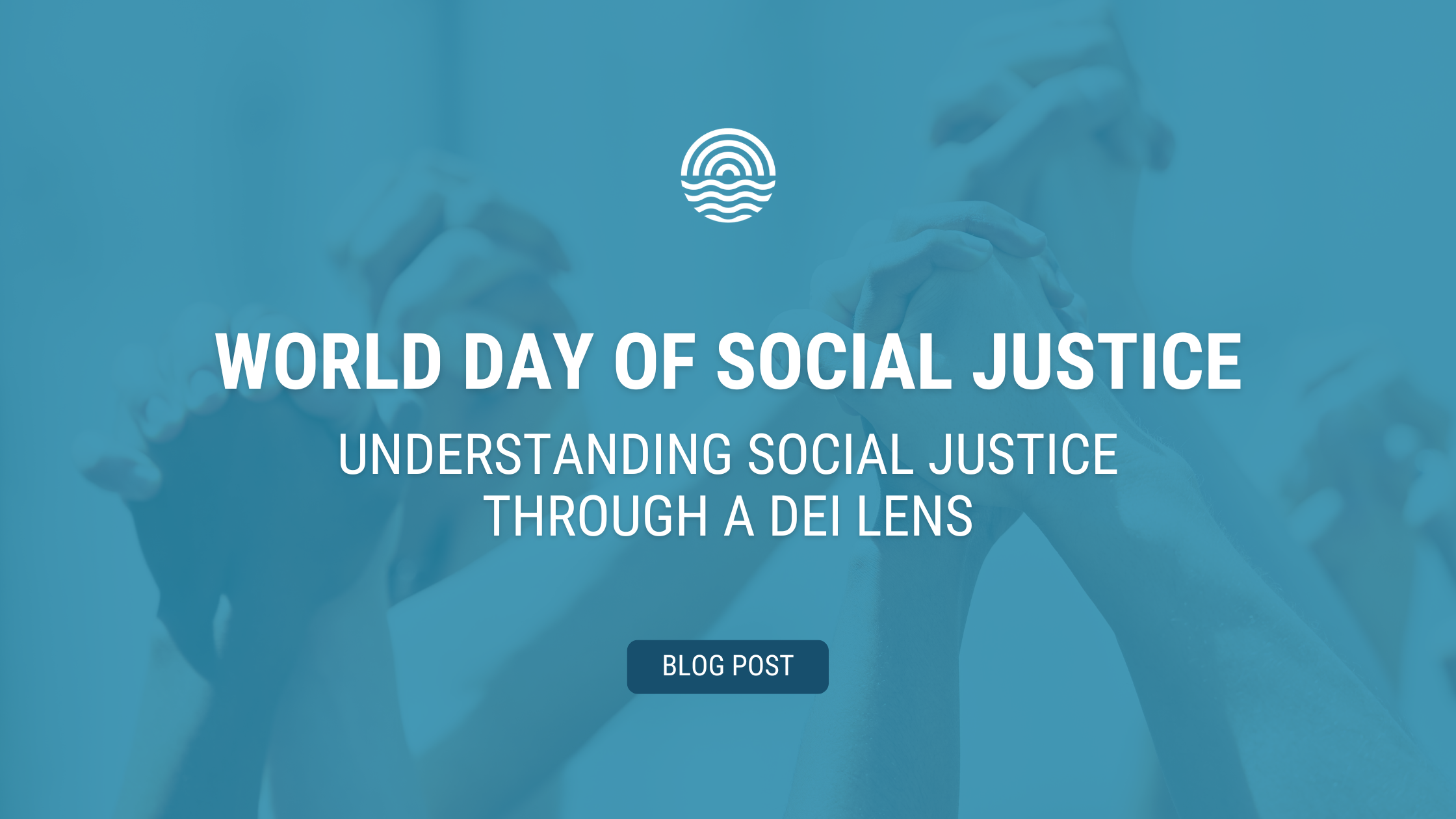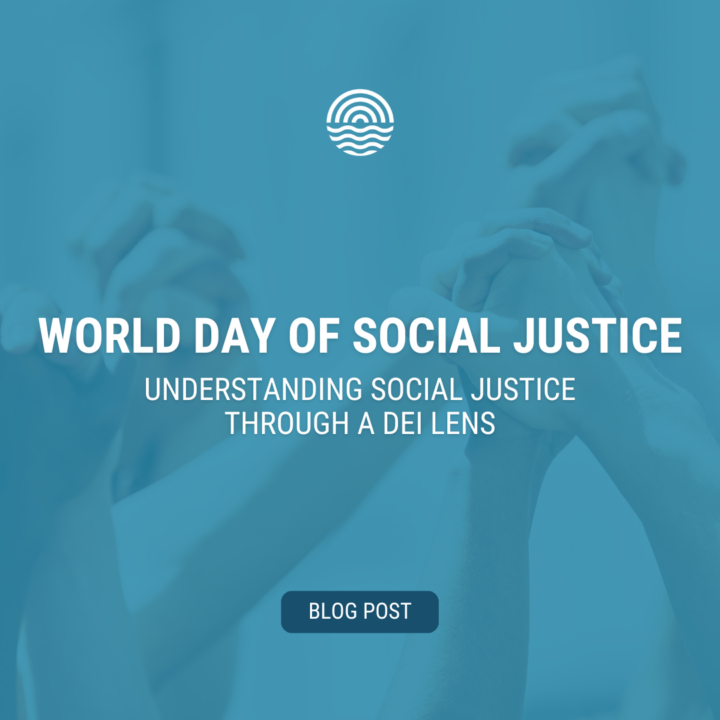
BLOG POST
World Day of Social Justice: Understanding Social Justice Through a DEI Lens
World Day of Social Justice is an international day recognizing the need to promote social justice, which includes efforts to tackle issues such as poverty, exclusion, gender inequality, unemployment, human rights, and social protections.
This day takes place every year on February 20th. It was designated by the UN General Assembly in 2007 to remind us of the need to build a fairer and more equitable world and to urge all efforts to combat unemployment and poverty.
What is social justice?
Social justice is the pursuit of a fair and equitable society where all individuals have equal access to opportunities, rights, and resources, regardless of their background or identity. It involves addressing systemic barriers, advocating for marginalized communities, and striving for policies and practices that promote inclusion, fairness, and human dignity.
Social justice encompasses issues like economic equality, racial and gender equity, access to education and healthcare, and protections against discrimination. Essentially, it’s about creating a society where everyone can thrive without facing unjust disadvantages.
Understanding Social Justice Through a DEI Lens
Social justice and DEI are intertwined. DEI principles help us recognize the systemic inequalities and biases that continue to create barriers for marginalized groups. Whether in the workplace, education, or broader society, inequities persist, limiting opportunities and reinforcing disparities.
A DEI-focused approach to social justice means actively identifying and addressing these barriers. It requires us to challenge discriminatory policies, advocate for fair wages, create inclusive hiring practices, and ensure that all voices – especially those historically silenced – are heard and valued.
Why Social Justice Matters in the Workplace
Workplaces play a critical role in advancing social justice. Organizations that prioritize DEI contribute to systemic change by fostering environments where individuals from all backgrounds can thrive. This includes:
- Equitable Hiring and Promotion Practices: Ensuring diverse representation at all levels and eliminating biases in recruitment and career advancement.
- Inclusive Policies and Benefits: Providing support structures such as paid family leave, flexible work arrangements, and accessibility accommodations.
- Psychological Safety and Belonging: Cultivating a culture where employees feel safe to voice concerns, share ideas, and be their authentic selves.
- Pay Equity and Fair Compensation: Closing wage gaps and ensuring fair pay for equal work.
How We Can All Contribute to Social Justice
Social justice is not just the responsibility of governments or large institutions – it’s something we can all work toward in our daily lives. Here are some ways to contribute:
- Educate Yourself and Others: Stay informed about issues of inequality and share knowledge within your community and workplace.
- Advocate for Inclusive Policies: Support policies and initiatives that promote equity, both within your organization and society at large.
- Challenge Biases: Acknowledge and address unconscious biases that may affect decisions and interactions.
- Support Marginalized Communities: Amplify the voices of underrepresented groups and contribute to organizations doing meaningful work in social justice.
The Power of Collective Action
Social justice is an ongoing effort that requires action, reflection, and commitment. Whether through our workplaces, communities, or daily interactions, we all have a role to play in breaking down barriers and fostering lasting change. Consider what you can do today to make a positive change that contributes a more inclusive future.
Ready to make your workplace more inclusive for all?
We’re here to help! Get in touch to learn more about implementing DEI initiatives that will drive meaningful change within your organization and across the waterfront.


